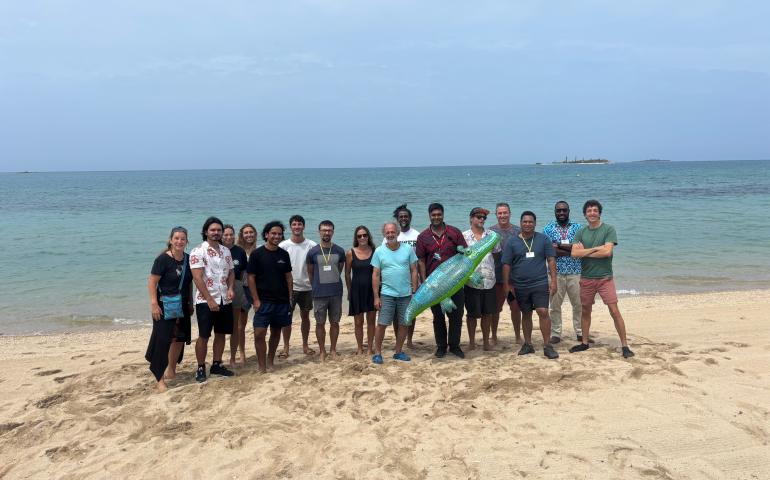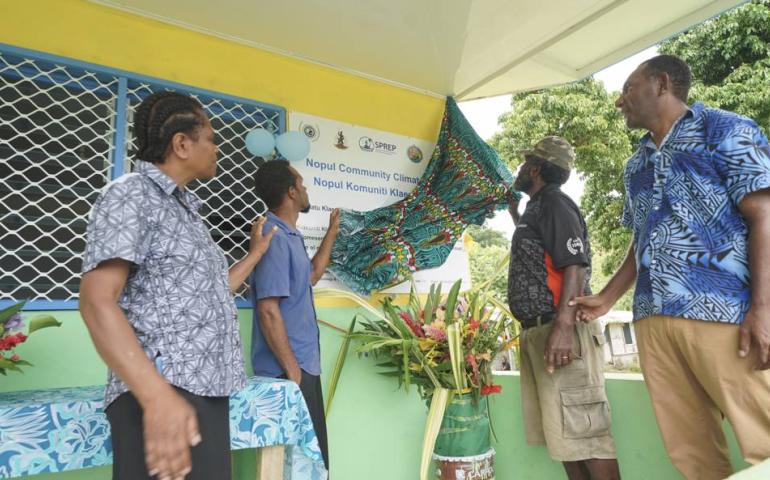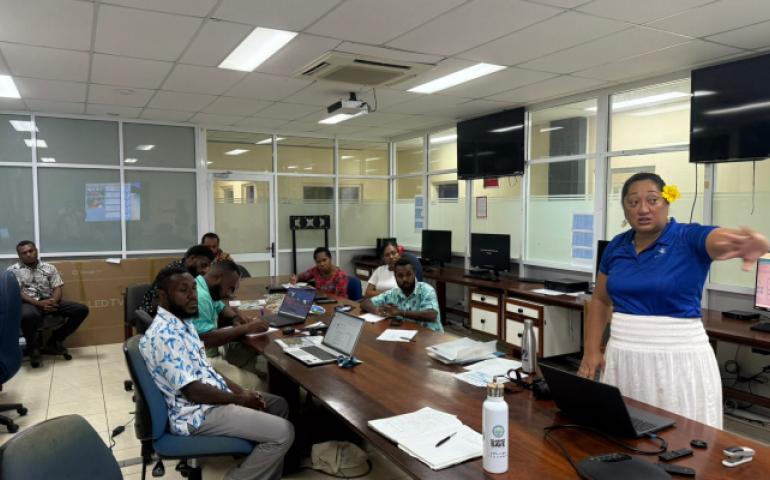The Pacific Island Communications, Infrastructure (PICI) Panel
The Pacific Island Communications, Infrastructure (PICI) Panel is proposed to be established to serve in the capacity of an advisory committee to the Pacific Meteorological Council (PMC) on matters concerning the infrastructure supporting communications and dissemination of national and regional hydro-meteorological and tsunami (seismic and sea level) observations, forecasts, and warnings in the Pacific region. The PICI previously existed as the Ranet ad-hoc working group on communications that was set up in 2003 at the Regional Meteorological Directors Meeting (RMSD) in Va’vau, Tonga.

Purpose
The purpose of the PICI Panel is to provide technical advice to the PMC on matters related to the infrastructure supporting communications and dissemination of national and regional hydro-meteorological and oceanographic/tsunami (seismic and sea level) observations, forecasts, and warnings, and to strengthen national and regional multi-hazard early warning and prediction for high impact severe weather, tropical cyclone, marine, and tsunami events, and carry out work on implementation. The PICI Panel will review gaps and challenges in promoting the importance of the timely delivery of warnings and alerts for the successful operations of Multi-Hazard Early Warning Systems (MHEWSs) and Multi-Hazard Information Systems (MHISs), as prescribed in the Pacific Islands Meteorological Strategy a (PIMS) and other international and regional frameworks (e.g. such as the Sendai Framework for Disaster Risk Reduction and the S.A.M.O.A Pathway).
The PICI Panel may advise relevant agencies and entities, as required by PMC, at the national and regional level that are providers of national telecommunications, Internet, VHF, HF, FM, and satellite communications systems, as well as regional and national telecommunications regulators, regarding improvement in the infrastructure supporting national meteorological services and others with multi-hazard early warning and prediction responsibilities (e.g. NDMO, Port Authorities, Fisheries, Geological and other national services, including those focusing on the disabled community).
Role and Responsibility of the PICI Panel
The PICI Panel will provide technical advice to the PMC on communications infrastructure for the following topics:
- Establish linkages and coordinate with international and regional organizations such as WMO, UNESCO-IOC, JCOMM, World Food Programme (WFP), Pacific Islands Telecommunications Association (PITA), the Pacific Disability Forum, Fisheries Forum Agency (FFA), Pacific Islands Forum Secretariat (PIFS), SPREP, USP, the University of Hawaii, and the SPC, that focus on telecommunications services for MHEWS and MHISs, and last mile service product providers;
- Strengthen the coordination, continuity and integration of current and future wired and wireless communications and dissemination initiatives which facilitate one-way and two way receipt of hydro-meteorological and tsunami forecasts and warnings to the last mile/kilometre at the community, national and regional levels;
- Strengthen the basic and core functions and capabilities of Pacific Islands National Meteorological and Hydrological Services (NMHSs) for robust and sustained data and information accessibility, collection, management, analysis, production and dissemination of products and services;
- Enhance avenues and modes of multi-way communication and feedback between provider(s) of hydro-meteorological, marine, oceanographic, and geological data and services and users of these services to enhance the education and outreach to communities and individuals;
- Coordinate with the PIMOS to support improvement of the infrastructure used for national and regional tsunami monitoring, early warning systems, and standard operating procedures, and develop relevant awareness programs, including support for and coordination with the IOC/PTWS SW Pacific Working Group on Tsunamis Warning and Mitigation;
- Explore options to improve coordination between national and regional communications providers, regulators, and regulatory frameworks, to insure adequate infrastructure to meet the requirements for MHEWS and MHISs before, during, and after significant national hazard events, and in particular as they impact the dissemination of information to vulnerable communities;
- Explore options to improve and expand early alert and dissemination messages for hydro-meteorological and tsunami warnings via mobile phone carriers using SMS, Cell Broadcast, and VHF line-of-site communications, especially in remote areas where gaps in infrastructure are prevalent.
- Assess, evaluate, and coordinate with national and regional disability agencies, forums, and advocacy groups to improve on alert and dissemination of hydro-meteorological and tsunami warnings to the disabled and most vulnerable populations.
- Support efforts of the RANET Pacific Communications Project and others who contribute to the ability of NMHSs to receive terrestrial and satellite data and observations, and multi-hazard dissemination of hydro-meteorological and tsunami products and warning messages.
- Work with national and regional telecommunications regulators, companies and providers to insure frequencies are allocated and prioritized for use by NMHSs, etc.
- Coordinate with the WMO RA V Working Group on Infrastructure and its Task Teams, particularly the Task Team on Satellite Utilization, to insure Pacific Island NMHSs requirements are being taken into consideration to the operators of Geostationary and Polar Orbiting Meteorological Satellites that cover the Pacific Region.
The PICI organizational arrangements shall include:
- The PICI Panel shall meet as required, taking advantage of opportunities that arise and connecting remotely when no related meetings or funds are available;
- The regular reporting to the PMC members on the progress of the PICI Panel;
- PICI Panel to draft and update its Implementation (Action) Plan; and
- PICI Panel will operate in line with WMO Weather Information System, and the World Weather Watch Programme.
Secretariat Support
The Pacific Meteorological Desk Partnership at SPREP provides the secretariat support for the panel.
Contact Details
For more information, please contact Salesa Nihmei ([email protected]) or Siosinamele Lui ([email protected]).



